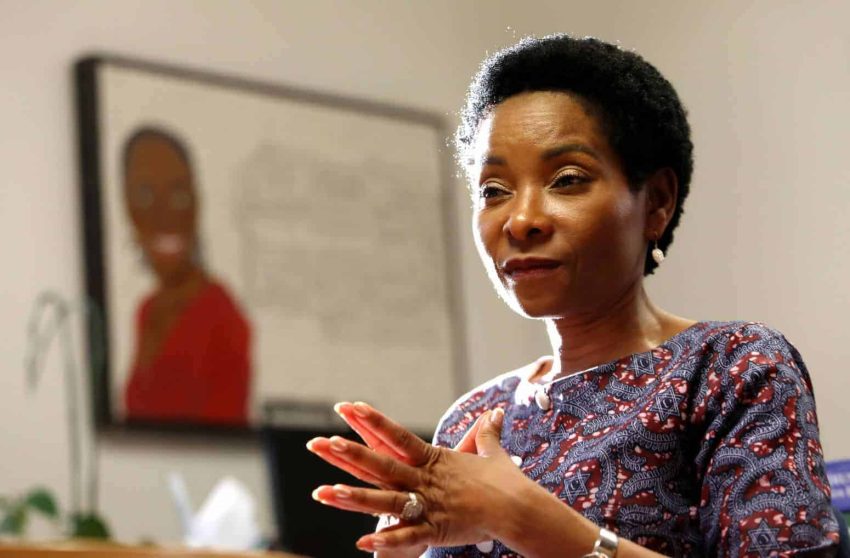South Africans should take confront the many problems the country faces before it is too late, says former UCT vice-chancellor professor Mamokgethi Phakeng.
Phakeng was speaking at Hope Restoration Ministries in Kempton Park on Friday.
“We have begun to take the unacceptable as a given, we drive around potholes as if they are normal parts of the road,” she said.
“People read about children falling into pit latrines or having to cross dams to go to school in the Eastern Cape and they just say ‘shame’ and move on with their day. That numbness is precisely how democracies die.”
Phakeng said it is rare for democracies to die through dictatorships or military coups.
“Democracies die more effectively through apathy. They die when good people stop paying attention, they die when good people stop believing in their power to bring change.
“When good people look away, when good people trust bad people with responsibilities, that is how democracies die,” she said.
How to honour Madiba
Phakeng said each citizen should stand up for what is right in honour of Nelson Mandela.
“Madiba himself taught us to face reality head on no matter how uncomfortable it is. So, we must confront these ugly truths if we ever hope to change them,” she said.
It is in your hands
She said it is now time for South Africans to take charge of their destinies and stop depending on political figures to save the country.
“I know that given our challenges it is very easy to think that we have to wait for someone to save us.
“We are waiting for a bigger hero, a more ethical politician a new government, a new policy, a billionaire philanthropist, the UN, or a miracle from somewhere.
“But fellow brethren we must be honest there is no one who is coming to save us.”
The solution is active citizenry
Phakeng said the solution to South Africa’s problems is in active citizenry.
“I submit to you that the answer is active citizenship, active citizenship means that ordinary people not only politicians or officials but all of us come forward and take responsibility for the wellbeing of our communities and our country.
“It means not waiting for someone else to save us but rolling up our sleeves and getting involved.”
ALSO READ: Mandela Day: Food and community upliftments
How to become an active citizen
Phakeng said active citizenship means each citizen must lead by example.
“If all we do is criticise without lifting a finger to help, then that is not active citizenship, that is commentary and it does not change anything.
“Active citizenship does not mean taking the law into our hands in a distractive way.
“Active citizenship is not anarchy, it is not looting or vandalising community resources out of anger or frustration.”
Phakeng said another way of being an active citizen is to report corruption to the authorities.
Her remarks come at a time when the country prepares for a national dialogue next month.
This dialogue will provide South Africans with an opportunity to express their frustrations with the challenges in the country and come up with solutions.
NOW READ: The real national dialogue has begun
